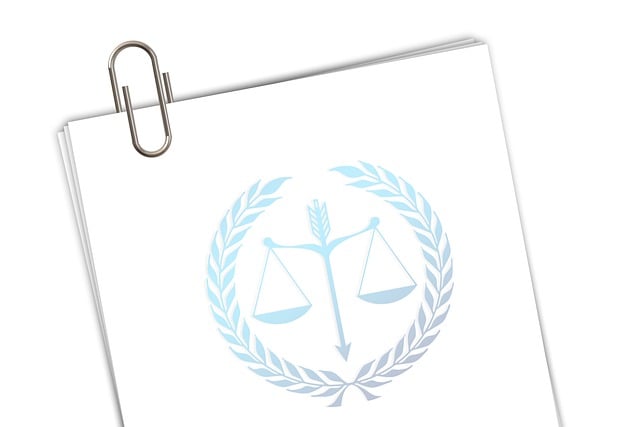Environmental Law Compliance Issues and Solutions pose significant challenges for businesses, with severe consequences including fines, legal actions, and reputational damage. Proactive measures like staying informed, implementing robust controls, training staff, and fostering ethical conduct are vital to avoid non-compliance risks. Case studies from scandals highlight the importance of transparency and accountability. Effective strategies include advanced data management, internal audits, regulatory collaboration, and legal counsel engagement.
Navigating environmental law compliance is crucial for businesses aiming to avoid regulatory fraud laws. This comprehensive guide delves into the intricacies of understanding these laws, exploring common fraud schemes in environmental regulations, and outlining legal consequences of non-compliance. We present effective strategies for prevention and detection, accompanied by real-world case studies that serve as powerful lessons. By addressing these issues and solutions, we aim to empower stakeholders to ensure robust environmental law compliance.
- Understanding Environmental Law Compliance
- Common Fraud Schemes in Environmental Regulations
- Legal Consequences of Non-Compliance
- Effective Strategies for Prevention and Detection
- Case Studies: Lessons from Real-World Scandals
Understanding Environmental Law Compliance

Understanding Environmental Law Compliance is a multifaceted challenge for businesses operating within regulated sectors. Companies must navigate a complex web of regulations designed to protect the environment, ensuring adherence throughout all stages of their operations. This includes stringent guidelines for waste management, emissions control, and sustainable resource utilization. Failure to comply can lead to significant legal consequences, such as fines, permits revocations, and even criminal indictments.
Addressing Environmental Law Compliance Issues and Solutions requires a proactive approach. Businesses should implement robust internal controls, regular training programs, and continuous monitoring to ensure they meet all environmental standards. By adopting best practices and staying informed about regulatory updates, organizations can mitigate the risk of non-compliance. Ultimately, this proactive stance not only avoids indictment but also fosters a culture of sustainability that can lead to long-term operational efficiency and competitive advantage in the market.
Common Fraud Schemes in Environmental Regulations

Environmental Law Compliance Issues and Solutions have become a growing concern for regulators and businesses alike. Common Fraud Schemes often involve misreporting environmental impact data, falsifying records to evade pollution control requirements, and engaging in illegal dumping practices. These activities not only undermine the integrity of Environmental Laws but also pose significant risks to public health and ecosystems.
Corporate and individual clients may attempt to navigate loopholes or manipulate data to reduce compliance costs. However, such actions often lead to unprecedented track record of legal issues, including civil penalties, criminal charges, and jury trials. To mitigate these risks, businesses must adopt robust internal controls, implement transparent reporting systems, and foster a culture of ethical conduct. By adhering to these principles, they can ensure long-term sustainability and maintain the trust of stakeholders.
Legal Consequences of Non-Compliance

The legal consequences of non-compliance with environmental laws can be severe, as regulatory bodies are increasingly prioritizing enforcement to protect public health and the environment. Companies found guilty of violations face a range of penalties, including substantial fines, license suspensions or revocations, and even criminal charges. Environmental Law Compliance Issues and Solutions are critical for organizations to avoid these pitfalls and mitigate potential risks. Achieving extraordinary results in environmental stewardship requires proactive measures, such as staying informed about changing regulations, implementing robust internal controls, and fostering a culture of compliance within the organization.
Throughout all stages of the investigative and enforcement process, companies should be prepared to demonstrate their commitment to environmental protection. This includes maintaining thorough records, participating in transparent investigations, and taking immediate corrective actions upon identification of non-compliance. Engaging experienced legal counsel specializing in general criminal defense can help navigate complex regulatory landscapes, ensuring that companies not only comply with the letter of the law but also understand the spirit behind it.
Effective Strategies for Prevention and Detection

Preventing regulatory fraud requires a multi-faceted approach that integrates robust internal controls with proactive monitoring strategies. Environmental law compliance issues often stem from inadequate procedures or a lack of transparency, making it crucial for organizations to establish clear policies and regular training sessions for employees at all levels. Implementing robust data management systems and promoting a culture of ethical conduct can significantly mitigate risks. Regularly reviewing and updating environmental practices in line with evolving regulations is essential to staying ahead of potential violations.
Detection strategies should complement prevention efforts, focusing on both internal audits and external monitoring. Advanced analytics and data visualization tools can identify anomalies in environmental data, alerting investigators to possible non-compliance. Collaborating with regulatory bodies and industry peers to share best practices and intelligence enhances the ability to uncover fraudulent activities early. An unprecedented track record of successful detection can be achieved by combining advanced technology with a vigilant approach, ensuring that organizations avoid indictment and remain accountable throughout all stages of the investigative and enforcement process.
Case Studies: Lessons from Real-World Scandals

In the realm of Environmental Law Compliance Issues and Solutions, case studies from real-world scandals offer invaluable lessons. The 2015 Volkswagen emissions scandal, for instance, underscored the significance of robust internal controls and transparency in reporting. As a result, regulators worldwide have been pushing for stricter enforcement and enhanced corporate accountability. This high-stakes case not only led to significant penalties and a winning challenging defense verdict for the general criminal defense team but also prompted the automotive giant to adopt more sustainable practices moving forward.
Another notable example is the Enron Corporation’s collapse in 2001, which exposed accounting fraud on a massive scale. This enigma of corporate malfeasance led to significant reforms in financial reporting and regulatory oversight. The lessons from such high-profile cases have been instrumental in shaping legal strategies for both prosecution and defense in environmental law compliance matters. By studying these real-world scenarios, businesses can better navigate the complexities of environmental regulations and avoid the pitfalls that can lead to costly litigation and damage to their reputation.
Regulatory fraud laws play a pivotal role in ensuring environmental law compliance, preventing common fraud schemes, and mitigating their devastating consequences. By understanding these laws, businesses can implement robust strategies for detection and prevention, fostering a culture of ethical conduct. Case studies from real-world scandals serve as powerful reminders of the legal repercussions and offer valuable lessons for navigating the complex landscape of environmental regulations. Embracing proactive measures and staying informed about compliance issues is key to avoiding pitfalls and contributing to a sustainable future.






